
Morning Sickness Survival Guide
It's definitely not fun, but you will get through this. Really.

In This Article
Oh, morning sickness. It’s exciting in theory since it’s often the first sign of your growing baby, but not so fun to live through. It’s like you have a hangover (without the fun night before) or churning seasickness (even though you’re nowhere near water). And the real kicker? The term “morning sickness” is a misnomer—it can actually strike any time of day or night.
So why does morning sickness happen? And what can you do about it? We talked to Dr. Jennifer Lang, a Los Angeles-based ob-gyn and author of The Whole 9 Months: A Week-by-Week Pregnancy Nutrition Guide to break down everything you need to know, including some tips to get through it.
What is morning sickness?
Morning sickness is nausea and vomiting that can happen in the first few months of pregnancy. Symptoms typically start around week five or six and then peak around nine weeks. For most people, it fades as you approach the second trimester of pregnancy, when it’s replaced by a burst of energy and you start feeling like yourself again. While it’s not super common, it’s possible to experience morning sickness past the second trimester (and up until birth for some).
If your symptoms are severe (vomiting multiple times a day for several days in a row), you might be experiencing what’s called hyperemesis gravidarum (HG). Often debilitating, HG is severe nausea and vomiting during pregnancy that can lead to dizziness, dehydration and weight loss. While it sounds miserable (and is for those who experience it), the good news is that treatments are available to help you get through it, so you’ll definitely want to talk with your doctor if you think you may have HG.
What causes morning sickness?
The specific roots of morning sickness are a bit of a mystery. Morning sickness “can be triggered by a number of things that are unique to each person,” says Dr. Lang. She suggests that it’s most likely a combination of a few different things, the biggest culprit being dramatic hormone shifts during pregnancy.
Some of the things that can trigger morning sickness include:
Hormones
Your hormone levels rapidly shift to support your growing baby, especially during the early weeks. For example, higher levels of human chorionic gonadotropin (aka hCG, the hormone responsible for your positive pregnancy test) are associated with an increase in nausea and vomiting. Estrogen is another crucial pregnancy hormone, and higher levels are known to cause an upset stomach.
Food and odors
Coupled with the rollercoaster of hormones, strong tastes and scents can also trigger nausea. And if you're someone who’s normally sensitive to tastes and smells, you may be even more likely to experience morning sickness.
Should I worry about morning sickness?
Morning sickness is no fun, but there’s generally no need to worry—there's no connection between feeling awful and risk to your developing baby. Unless you’re experiencing HG, morning sickness won’t harm your baby.
“That morning sickness queasiness could even be protective,” says Dr. Lang, “evolutionarily, it may be a protective way to avoid harmful toxins.” It decreases your appetite, which may keep you away from eating food that could make you sick (like raw fish and certain types of cheese). As always, don’t hesitate to talk to your healthcare provider if you’re concerned.
Tips to Ease Morning Sickness
The only real way out of morning sickness is to get through it. “Just remember that it very likely [will] pass,” says Dr. Lang. However, you can take steps while you’re in it to help alleviate your symptoms.
Here are some ways to help ease morning sickness:
Prioritize rest and sleep. While it’s often easier said than done, “getting good sleep, as much as you can, is an excellent place to start,” Dr. Lang says.
Eat smaller meals and stay hydrated. Big meals take longer to move through your system while you're pregnant, which may trigger nausea. “If you can, eat smaller, regular snacks throughout the day as opposed to larger meals,” Dr. Lang says. Also, try to eat something first thing in the morning. Plain foods (like crackers) plus foods high in protein and fat (such as almonds or cheese) can help keep nausea at bay longer. Certain foods and scents—including citrus and ginger—can also be soothing. And be sure to sip water throughout the day.
Move your body. Keep up your workouts if you can—it's shown to offer some relief. You can also try walking after meals, prenatal yoga, meditation, acupuncture and acupressure.
Take a prenatal vitamin. Dr. Lang suggests looking for prenatal vitamins that contain Vitamin B6, which can help with nausea. If the prenatal vitamins themselves make you queasy, consider taking them at night with a small snack rather than in the morning on an empty stomach. For some people, a magnesium or calcium supplement may help with morning sickness, but don't take any supplements without first talking with your healthcare provider.
While it's easy to wish that there was a magic cure for morning sickness, remember that it won’t last forever. In most cases, the queasiness is a long-distant memory by the time your baby is born.
Add to Cart: Products to Ease Morning Sickness
Here are a few things to stock up on during the first trimester to help you manage morning sickness if and when it arises:

Preggie Pops
Preggie WristBand - Nausea Reducing Wrist Band
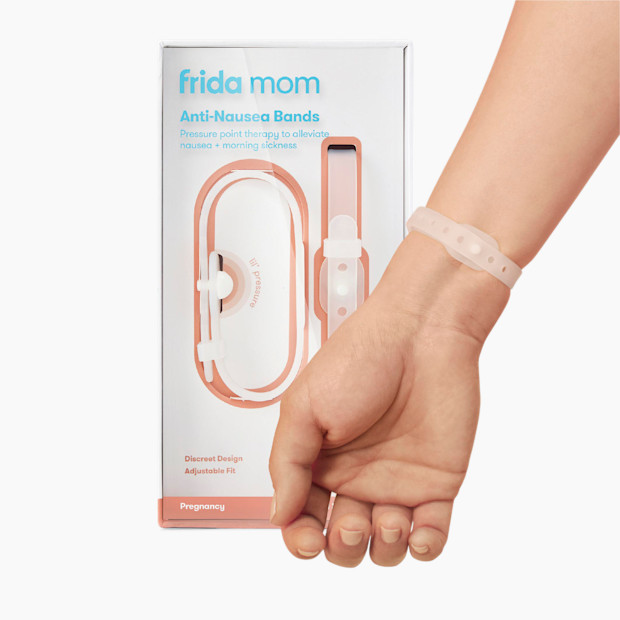
Frida Mom
Nausea Relief Band (2 pack)
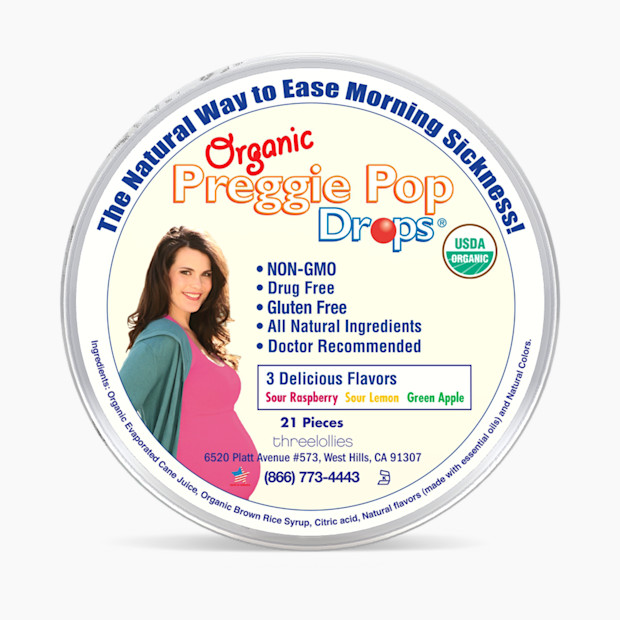
Preggie Pops
Preggie Drops - Organic Nausea Reducing Hand Candies

Tummydrops
Organic Natural Ginger Drops
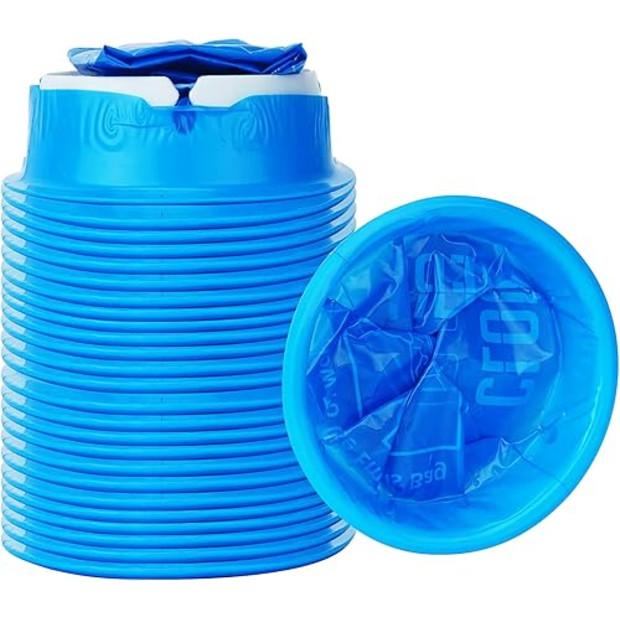
CLOUDBERG
24 Pack Blue Emesis Bags

allclair
Herbal Inhaler - Natural Non-Medicated Relief for Nausea
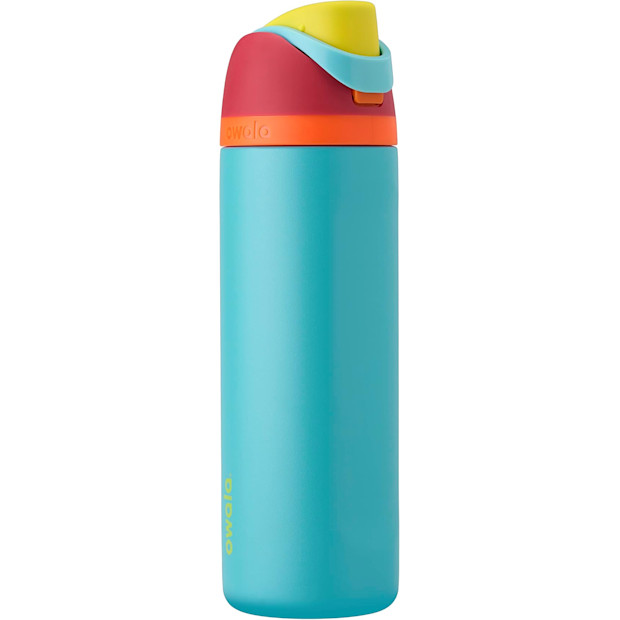
Owala
FreeSip Insulated Stainless Steel Water Bottle
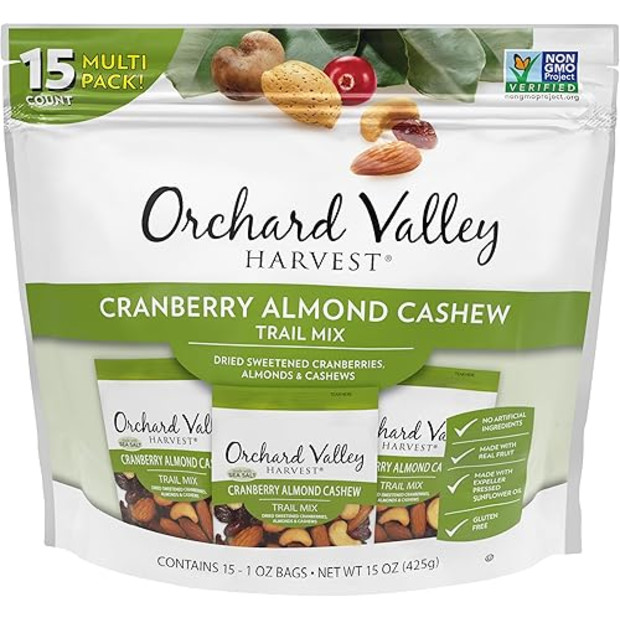
Orchard Valley Harvest
Cranberry Almond Cashew Trail Mix

Expectful Wellness App
Sources
Babylist content uses high-quality subject matter experts to provide accurate and reliable information to our users. Sources for this story include:
Jennifer Lang, M.D., OBGYN and author of The Whole 9 Months: A Week-by-Week Pregnancy Nutrition Guide with Recipes for a Healthy Start.
